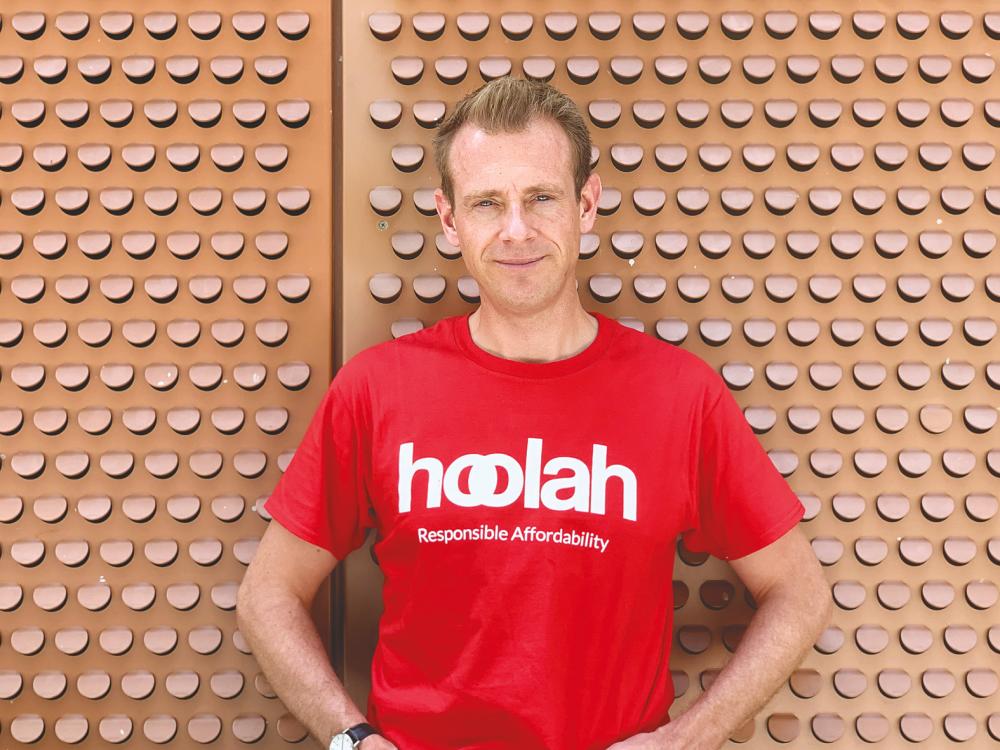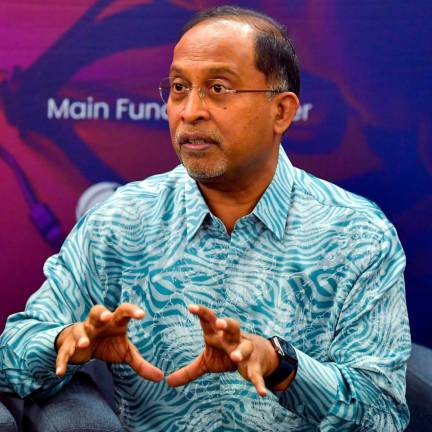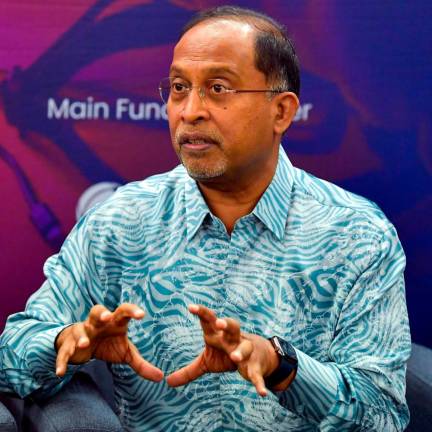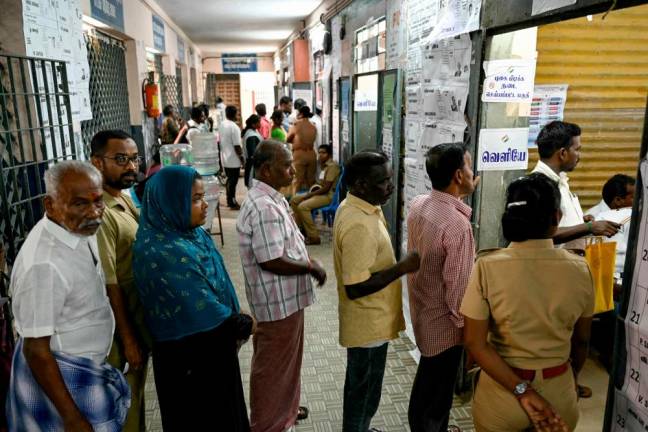PETALING JAYA: The rise in e-commerce has brought forth “buy now, pay later” (BNPL), an instalment payment solution for businesses and consumers that is gaining traction in Malaysia as most merchants report increased online sales with bigger basket sizes by offering the option.
One such merchant is optical retail chain store Focus Point Holdings Bhd. Focus Point has more than 180 outlets nationwide, including various concept stores. It has embarked on e-commerce, aiming to build an online to offline shopping experience for customers.
Focus Point e-commerce & marketing manager Joey Chun said online sales contributed about 0.8% in Focus Point and saw about 20-30% growth during the movement control order (MCO).
“With the implementation of MCO/conditional MCO, it was definitely challenging to drive sales through physical retail stores, hence we deployed Hoolah as a payment option on Focus Point’s online store. Not only does it allow our customers to pay off their purchase over three monthly repayments with zero interest, they can also use a debit card on checkout with no minimum purchase required. With this solution, our customers can afford the optical products they need during this time of uncertainty,” Chun told SunBiz.
“With BNPL solution Hoolah, our average basket size has now increased to 15%; we even saw an increase of almost 50% in certain months. We noticed that customers who made purchases using Hoolah are willing to spend more; the highest transaction we recorded that was paid via Hoolah was at RM819.”
Hoolah founder & CEO Stuart Thornton (pix) said it has supported the Focus Point team since last year. Being able to use Hoolah gives Focus Point customers payment flexibility, which improves the overall customer experience and, in turn, encourages repeat purchases.
Singapore-based Hoolah has more than 300 merchants in Malaysia, from electronics, fashion, accessories to home and lifestyle, including brands such as Focus Point, Braun Buffel, Kenwood, FashionValet, Jurlique, Melissa Shoes, Puma, Sonos and Tudung People.
In 2020, its transaction volumes increased more than 64-fold.
“Our merchant partners have reported 20-40% increases in conversion and basket size; there are also many merchants with greater outcomes. We’ve passed 2,800 retail store partners across Singapore, Malaysia and Hong Kong – a testament to the growing consumer demand for BNPL services.
“For consumers, price is always a big factor. With Hoolah they can manage their monthly budgets by paying one third of the full price. They also have the option to use debit, and the ability to manage their monthly budget and personal cash flow.”
For 2021, Thornton said its Series B fundraising, which it is now preparing for, will help Hoolah to further achieve its goals of geographical expansion, hyperlocalisation and product growth. Its upcoming markets are Thailand and the Philippines, where it aims to launch in the first quarter this year.
“Ultimately, we want to connect merchants with consumers across Asia, and enrich the consumer’s lifestyle as we expand into new categories such as experiences, services, insurance, and accommodation.”
Having expanded into Malaysia in 2019, Thornton has seen growing consumer demand for BNPL services across various categories. He said BNPL is also a platform that merchants can connect into to help them to recover their business and set them on the path for future growth.
“When we set up the business three years ago, we had a clear intent to grow Hoolah into a multi country and multi merchant lifestyle platform. Critically we built our technology platform with this in mind – to enable us to localise language, compliance, communication, people and payments. This has allowed us to quickly launch in new markets with minimal fuss such as in Malaysia and Hong Kong. The value we’ve delivered has enabled us to build the widest breadth of blue chip merchants.
“We felt there was an opportunity to bring a solution to Malaysia that could help Malaysians the right way. The further validation was the demand from our merchants who we worked with in Singapore to bring Hoolah to Malaysia.”
In the past year, Thornton has seen a few players emerge around the region, jumping on the BNPL bandwagon However, he said, the majority of these players are versions of “old models of lending or credit”.
“We were the first to Malaysia and Singapore. We have a first-mover advantage, an experienced team in payments and BNPL, a localised enterprise engagement model, unique value proposition focus, a product-led roadmap investment, technology expertise, data and insights, customer service, proven outcomes and case studies. Just offering BNPL does not mean a merchant will see the outcomes promised by BNPL. There is a unique formula which Hoolah has developed and will continue to deliver to Malaysia.”
Thornton said Hoolah is more than just a payment solution/gateway, as it is also a marketing channel/tool that helps solve its merchant partner’s challenges, and used by merchant partners as an upstream solution, delivering cross-marketing collaborations with them to drive awareness among their customers and the wider consumers.
On BNPL making people go into unaffordable debt and harming their finances because they may not be able to pay later, Thornton said it has created this concept of “responsible affordability”, which is Hoolah’s motto and strategy since it founded the business.
“This is one of our biggest differentiators when it comes to Hoolah’s take on BNPL. We look at BNPL as a way of ‘responsible affordability’. We want to allow customers to make an investment into quality products but at the same time make sure they don’t fall into debt. It’s ok for people to want things and to shop, as long as it’s responsible. It’s about allowing customers to take control of their spending rather than overspend. There are instances where we’ve rejected transactions when we think people are moving towards the wrong direction.”
Hoolah reduces the impact of price for consumers through splitting their purchases into three monthly repayments at no additional cost. Consumers can shop online at a Hoolah-partnered store, and select Hoolah as a payment option upon checkout. From there, Hoolah automatically divides the total bill to three equal parts, and the consumer only needs to pay one-third of the total sum and get their items delivered to them. Consumers can also choose to complete their repayments early, if they wish.
“Hoolah pays its merchants upfront, while the repayments from consumers are handled by the BNPL provider. Our business model is a B2B2C – we don’t make money off the consumers. It is from a merchant’s perspective that they invest in the four outcomes: getting customers to come to their store, drive conversion, increase in basket size, and repeated customers.
“We are seeing BNPL gaining popularity across the Asia Pacific. Consumer preference has also shifted towards using debit over credit – people are becoming more thoughtful about price,” said Thornton.
He explained that default cases have been low for Hoolah because of the strength of its technology, and it ensures measures are implemented to mitigate these risks by educating and communicating with consumers regularly.
In this new normal, he said Hoolah has always been a highly digital business and somewhat remote with its teams working in different locations across Asia. It has scaled its team from 30 to over 150 across three to five markets and is utilising technology to drive productivity and growth.













